|
We will give you a FREE NinGenius app just for sharing a SUCCESS STORY on social media. Every participant wins!
Simply: 1. Share a NinGenius success story on social media using: a. one of the images below -OR- b. a link to our website (www.ningenius.net) 2. Take a screen shot of your post 3. Email the screen shot to [email protected] That's it! The first 100 people who participate will receive a free download code for one of the following NinGenius Music apps: 20 School Edition apps 30 Studio Edition apps 50 Student Edition apps The deadline for sharing your story is Sunday, November 27. Download codes will be awarded proportionally to the number of participants, with School and Studio codes going to the first 50 participants, and School codes going to the MOST INSPIRING posts. Happy sharing!
5 Comments
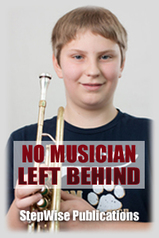 Having taught band for 17 years, I am very aware of the tendency for SOME beginning band and orchestra students to get overwhelmed with note reading after getting to the 4th, 5th, and 6th notes. I have seen this happen every year around the 3rd month of school. As I continue to lead my classes through the method book, teaching new notes and concepts day after day, hoping that everyone is building a comprehensive understanding of music notation, some of my students begin a secret struggle to keep up with the rest of the class. How Some Begin to Slip I don't notice which students are falling behind at first, because kids don't tend to raise their hands and say, "Mr. Winters, I feel stupid right now, and I am getting totally lost!". Instead they revert to various coping mechanisms, such as trying to play by ear or watching the fingerings of students around them. 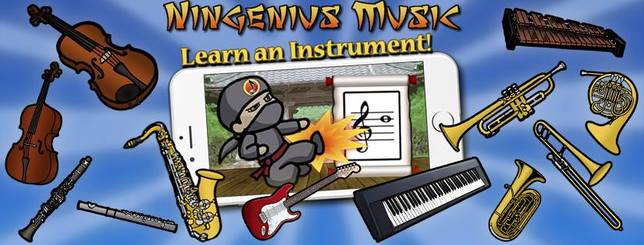 Thrilled to announce that our favorite little ninja is now on the iPhone! All the best features & levels of the Student Edition are accessible as you work your way up to a Black Belt on all your notes and fingerings. Coming up next is an update to the School and Studio Editions, which will include the new features in the previous blog post. We are working here to make your professional life easier and WAY more fun! If you haven't already done so, please LIKE our Facebook page in order to receive the latest news and to take advantage of our sales: https://www.facebook.com/NinGenius/ It has been a great first couple of months for our NinGenius iPad app! We are grateful for so many fantastic reviews by music and technology bloggers. We have also received plenty of helpful feedback from app users, and I'm thrilled to report that the first update of NinGenius Music is coming soon!
In addition to getting rid of some rare, but nasty little bugs, you can expect at least two awesome new features: For those of us who have been reading music for years and years it is a challenge to put ourselves in the shoes of young kids who know NOTHING about music.
It seems so simple to us - the notes are either on lines or spaces. Every Good Boy Deserves Fudge. Every time you see a note on the bottom line, press valves 1 & 2 (for trumpet). That's all the kids should need to know to start reading music, right? 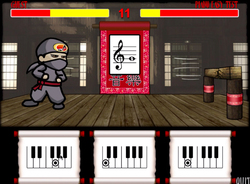 If you are like me, and have taught beginners how to play instruments in band or orchestra classes for several years, you have realized what a challenge it is to help young students learn and memorize all of their notes and fingerings. It is not enough to just teach them what the notes and fingerings are, and it is still not enough to review them over and over. What students need is assessment: they need to be tested on their notes and fingerings. Assessments serve two functions: 1) they put pressure on the students, making them feel a greater sense of urgency to learn things...and this sense causes the brain to memorize and retain things at a faster rate, and 2) they allow teachers to see what each student specifically knows (or doesn't know). I'll never forget when a certain student approached me at the end of his 3-year experience in my band program and stated, "I've never actually learned the notes and fingerings, I just figured out how to play each song by ear and by watching the people next to me." And, if you can believe it, this student's father was a band director at another school! I wondered how it was even possible that he didn't ever learn his notes and fingerings, because I talked about them and reviewed them OVER and OVER, EVERY DAY! I began wondering how many of my other students were faking their way through my band and orchestra classes, all the while never letting on that they can't "read music". With some laborious assessment I was able to find out exactly who was clueless about note reading: about 15% of my students. Unless you assess, many of your students will simply never learn their notes and fingerings. With regular assessment, your students will learn their notes and fingerings, including all the sharps and flats, much faster and more thoroughly. Now, assessing fingerings is a tremendous challenge, because in your band or orchestra classroom (and I teach BOTH) there are multiple sets of fingerings for each note (12 different instruments in band, and 4 in orchestra). Do we really have time to make 16 DIFFERENT VERSIONS of every question of every fingering test? No way! This is the beauty of the NinGenius Vs Music app. It handles all of the transpositions and different instrument fingering systems for you. And it allows for DAILY assessment of A) Note Names and B) Fingerings for four different levels of difficulty: 1. The Beginning level tests the first 5 notes taught in most beginning method books (like Essential Elements, Strictly Strings, Band Expressions, String Basics, etc.) 2. The Medium level assesses the first 12-13 notes taught in most beginning method books 3. The Advanced level adds 7-9 notes to the Medium level 4. The NinGenius level tests every note in the standard range of each instrument (between 26-31 notes) What is awesome about this music assessment app is that it can store an unlimited number of users - meaning that every student in your class can enter their name and instrument on ONE iPad. Then you, as the teacher, can access all of their gameplay data - you can see EVERY game that they played, including their score, accuracy, and speed. Wow!! Talk about assessment data! Whether you want to use NinGenius Vs Music as part of your grading system or simply as a way of increasing your students' sight-reading skills, it will make a huge impact in the music reading abilities of your music students. The future of musical instrument assessment is here! With NinGenius Vs Music your band and orchestra students will learn their notes and fingerings like never before! As a junior high band/orchestra teacher I have know for years what wish I would make if a genie magically appeared out of the bell of a dusty old baritone horn. It is a wish we music educators have all desired nearly every day of our teaching careers. From the depths of our souls and the innermost parts of our heart we all desperately want ONE THING: we wish ALL of our students could READ MUSIC!
Everything else is easy to teach in comparison: expression, playing in time, breathing in the right places, using the right bow direction, and even playing in tune. But, the number one problem for me over 19 years of teaching beginning band and beginning orchestra has been to get everyone reading music. Sure, most of the young recruits catch on pretty well, but there is always a number of students in every class that begin to fall behind because they can't make sense of music notation. I would give my left conducting arm if I could get everyone in my band reading the dang notes! This includes getting the entire trumpet section using their middle fingers...for F#, of course. And I would also really like the trombonists to finally learn what 2nd position is (yes, there IS a number between 1 and 3). Thank goodness for the flute section. They give me hope for the future of humanity, but they do usually forget that they have a pinky on their left hands (for the A when there are 3 flats in the key signature). Speaking of pinkies, I've got one word for you: clarinets. No less than 10 clarinet notes require the use of one or more pinkies, and most clarinet players mystically develop a very twisted sense of what “down” and “up”, and “out” and “in” mean when referring to moving their right pinky. So, a lot if guess work is going on in the clarinet section. Of course, the kings and queens of guesswork are the French Horn players. Any note other than F is a mystery to them! Did I just say mystery? Because there is nothing more mysterious to saxophone players than the constant question: "Is it F sharp or F natural?". Then once the elusive answer is discovered the mystery continues with the "pointer finger or middle finger" conundrum. To my beloved young band pupils and orchestra protégés I have one sinple request: WOULD YOU PLEASE LEARN YOUR NOTES AND FINGERINGS?! Okay, so granted that this is actually TWO requests. Semantics. In my quest to lead all my pupils to fingering perfection I have visited many interesting lands. First was the kingdom of Lemee Showya - a beautiful island nation in which kids learn by watching you demonstrate the notes and fingerings on each instrument many, many times. I soon found myself on a boat fleeing from hoards of teacher-eating monsters which had little interest in paying attention long enough to develop a useful life skill. Next I journeyed over rugged terrain to the land of Han Doubt, only to find that placing a photocopied fingering chart in each student's music folder provided no relief from the onslaught of wrong notes. I next trekked over the mountains of Foto Shopp to the wondrous high-altitude nation of Testimee Daylee. The inhabitants of this little corner of the world proved much more attentive. However, the constant landslides of paperwork (chanting "Grade me! Grade me!") soon buried my hopes of staying there for any length of time. The longest journey yet brought me to a sparkling castle amidst rich, forest-covered hills. Inside I found cooperative youth who were eager to become well-trained musicians. The secluded place was called Stepp-Wyze Flasch-Kard, and it was soon filled with such melodious music that I hardly hoped for a better home in any corner of the world. But, not many days hence I began hearing whispers and rumors of a another land...a magical land of unicorns, leprechauns, and...ninjas, and I became determined to find it. I cannot describe the length, the breadth, nor the many difficulties of this last great adventure, but suffice it to say that I, at last, reached the land of ultimate musical achievement. A place where great music spontaneously combusts from children who are eager to learn and who quickly become masters of notes and fingerings. It is the land of Nin-Genius! |
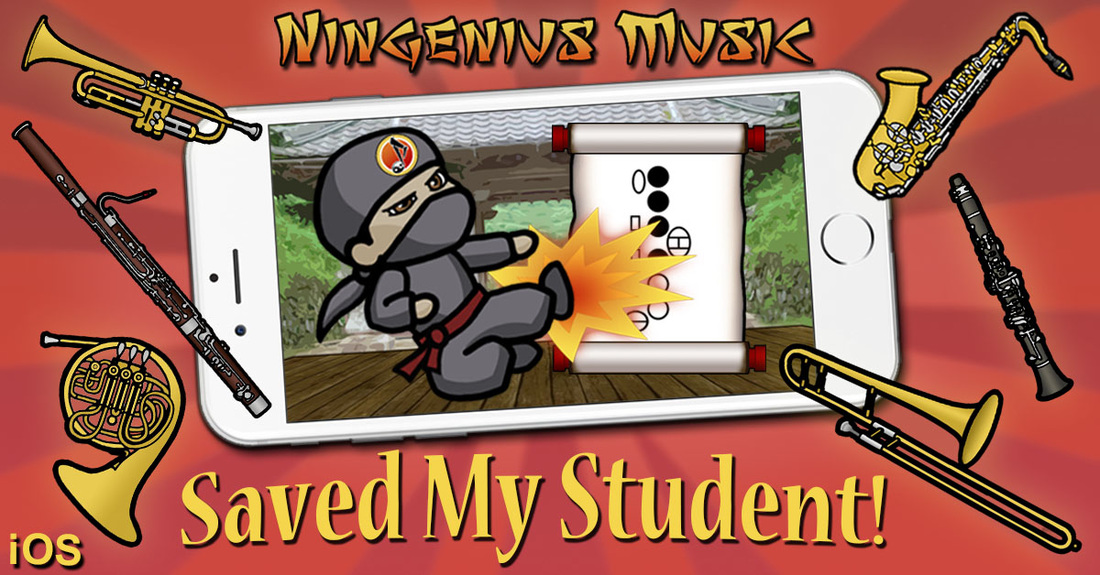
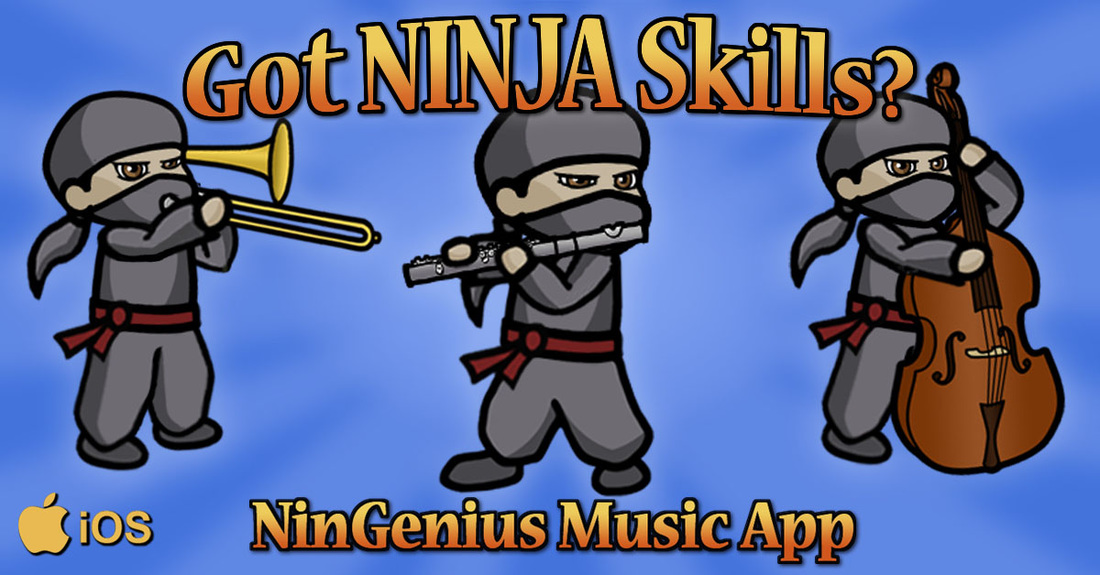
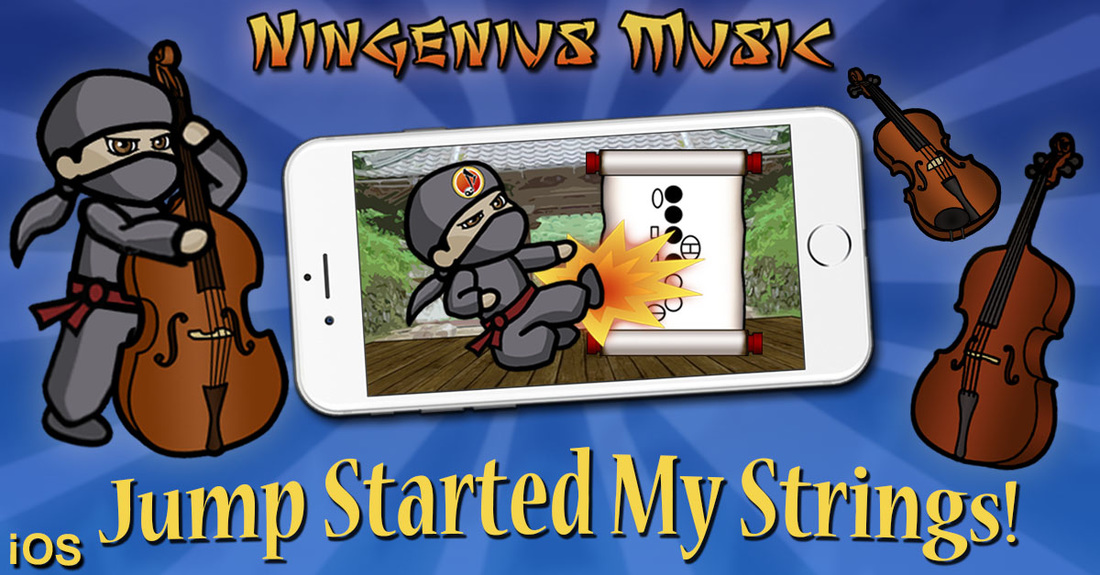
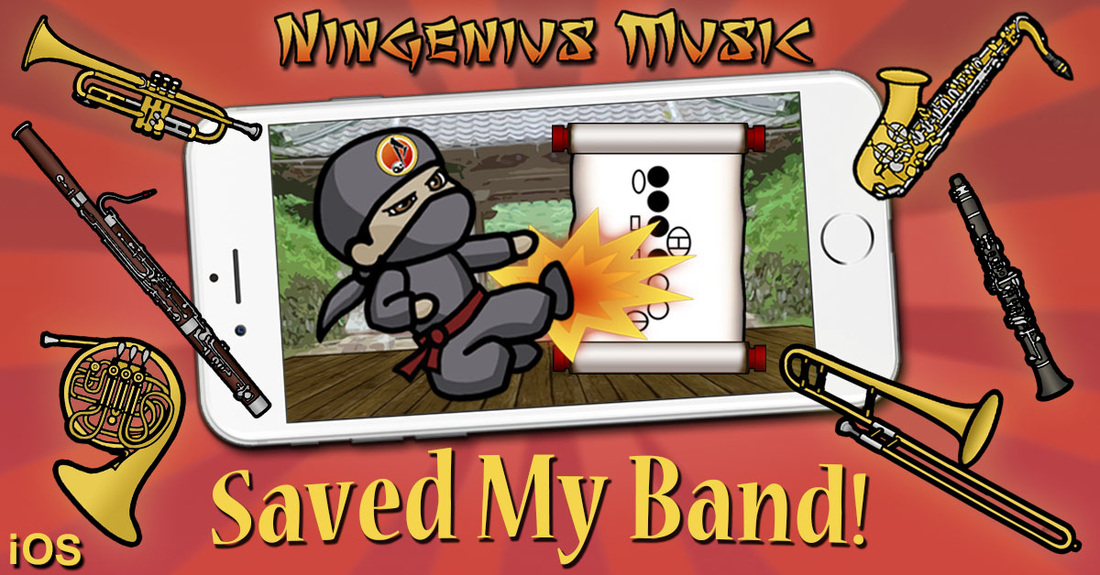
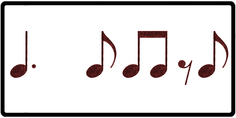
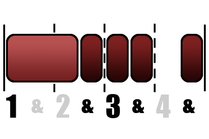
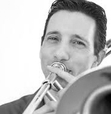
 RSS Feed
RSS Feed